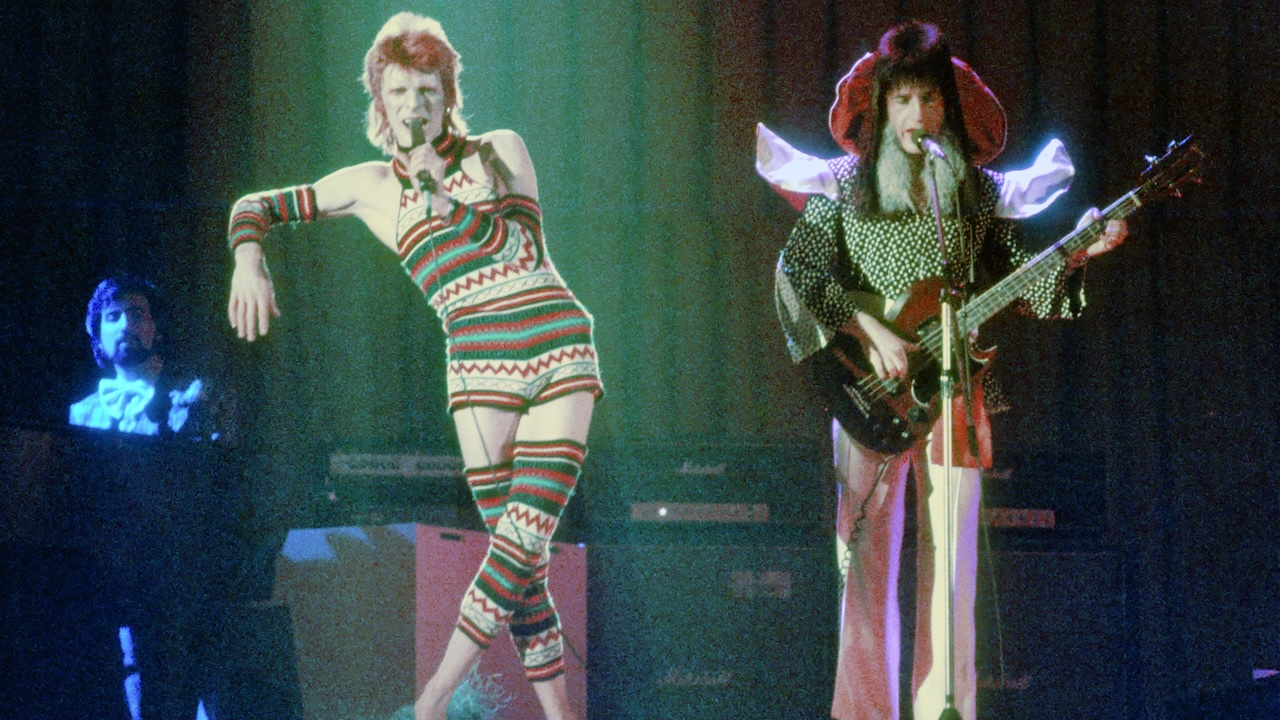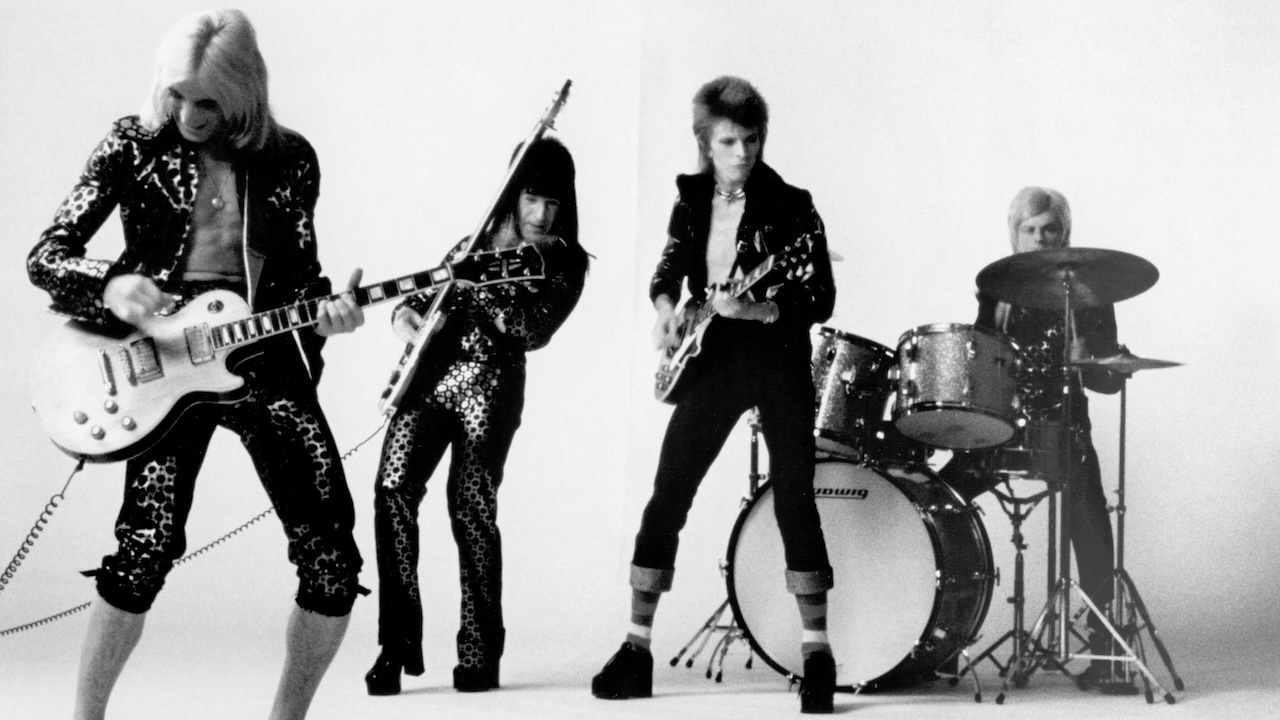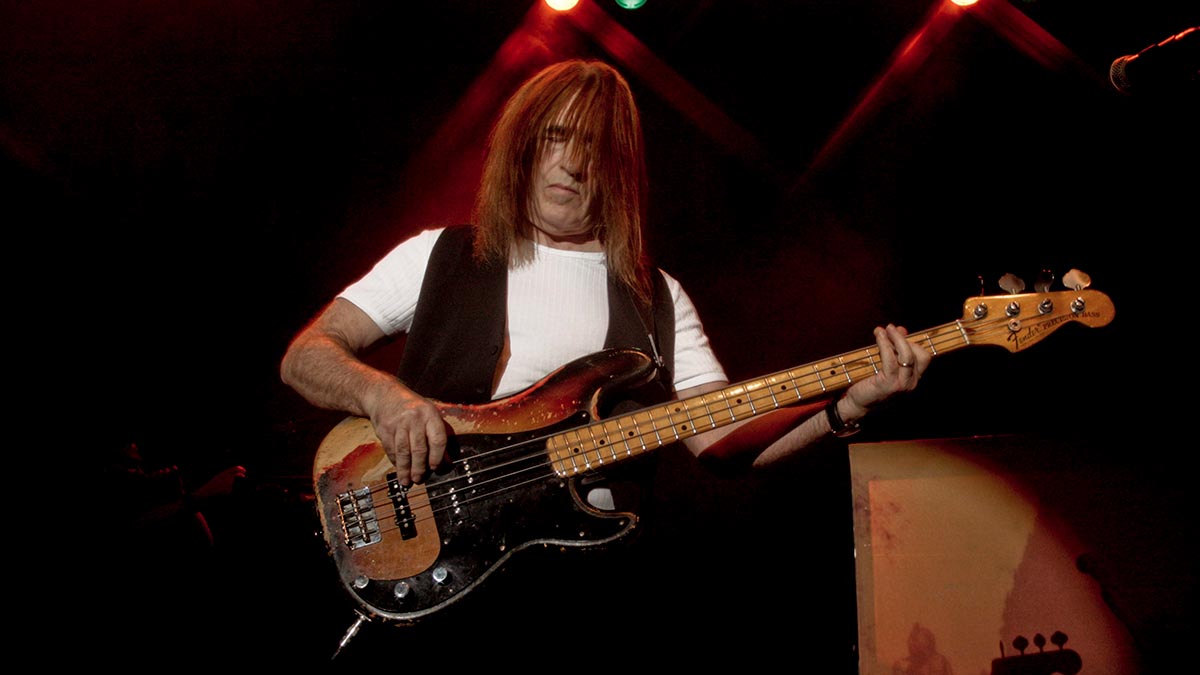“Herbie Flowers was supposed to do the date, but he couldn't make it. So Bowie said to me, ‘You'll have to play bass’”: Trevor Bolder speaks out on his storied history with David Bowie
How could anyone who played bass on Ziggy Stardust not be a rock legend?

With its unique balance of blues roots, pedal to-the-metal hard rock, and vocal pop sensibilities, Trevor Bolder's bass playing was a fascinating contrast of approaches. On Uriah Heep’s acclaimed 2008 release, Wake the Sleeper, Bolder can be found pumping piston-like eighth-notes in a verse, before shifting gears to a soaring counter-melody line in the chorus, via his trademark sliding octaves.
Then again, when your career begins with a visionary like David Bowie, imagination is not a problem. “A lot of the basslines for Bowie had to come off the top of my head,” Bolder told Bass Player back in 2008. “It was an on-the-spot situation. We had some rehearsal time for Ziggy Stardust, but for much of Aladdin Sane we’d get two runthroughs and then do the take.”
Born on June 9,1950, in Hull, England, Bolder heard the sounds of skiffle, early rock, and the big band jazz of his trumpet-playing dad. This led to trumpet lessons at age nine, and school brass bands. When the Beatles and Stones hit, Bolder and his older brother bought guitars and started a band.

Bolder ended up on a Burns solidbody bass guitar, picking up tips from his brother's guitar teacher and the upright bassist in his dad's big band. Deeply into the blues, the group covered Muddy Waters, Sonny Boy Williamson, and John Mayall & the Bluesbreakers. Soon, Bolder was adding the influences of Paul McCartney, John McVie, John Entwistle, and his main inspiration: Jack Bruce.
“I saw Jack with Cream, and he just blew me away with his energy – plus he sang. I got Fresh Cream and sat for hours in my bedroom with my bass and amp, playing along. Jack has a great melodic sense from his cello background, but he also lays it down with a heavy feel. I'd been a solo cornet player in brass bands, so I could relate! Through Jack I developed my style, which was to push it a bit further and probably play a little more than I should have!”
Making his way through various bands, Bolder eventually hooked up with guitarist Ronson, leading to his stint with David Bowie.
Our interview from the Bass Player archives took place in October 2008.
Get The Pick Newsletter
All the latest guitar news, interviews, lessons, reviews, deals and more, direct to your inbox!
How did you come to join David Bowie’s band?
“Mick Ronson and drummer Woody Woodmansey had done Bowie’s The Man Who Sold the World album, and they came back to Hull, not wanting to do the Bowie gig anymore. But then Bowie called them because he needed a band to do the John Peel radio show, so I tagged along for the ride.
“Herbie Flowers was supposed to do the date, but he couldn't make it. So Bowie said to me, ‘You'll have to play bass.’ I asked how many songs, and he said, ‘Eight!’ I spent all day learning them, and the next day we did the show.
“Six months later we came back down to London to record Hunky Dory. I used mainly a Gibson EB-3, trying to get the big sound Andy Fraser got with Free.”
How did you come up with your bass parts?
“It was a challenge, first because it was lighter music than I had been used to playing. And to teach you his songs, he'd come in with an acoustic guitar and say, ‘Okay, play along.’
“David had written The Jean Genie on the back of a Greyhound bus on tour in America. We went into RCA Studios in New York to record, and he started playing the song. Well, as soon as I heard his opening guitar riff I thought, ‘That's I'm a Man by the Yardbirds.’ So I took bassist Paul-Samwell Smith's triplet line and extended it, and that's what you hear at the beginning of the song.
“Sometimes we'd listen to David and write down chord sheets and then follow those while coming up with parts. When we did Live in Santa Monica 72, I had to learn Tony Visconti’s basslines on The Man Who Sold the World; I learned the notes and then tried to make the parts my own. Overall, I'd say my favorite tracks with David were Quicksand and Moonage Daydream.”
![David Bowie - Moonage Daydream (Live at Hammersmith Odeon, London 1973) [4K Upgrade] - YouTube](https://img.youtube.com/vi/6pXoQ6iYO1w/maxresdefault.jpg)
You've said your style really came together when you joined Uriah Heep.
“I think so, yes. I wasn't really doing anything in 1976, when Woody, who was in a band on the same label, called me to say Heep was looking for a bassist. I auditioned in London and got the gig.
“What I liked was they were a blues-influenced heavy rock band, but with a melodic side, as well – with the big vocal harmonies. So I could play heavy, but there was also plenty of room to move about as a melodic-minded bass player.
What tracks stand out for you?
“Shadow is cool; it has an old Free or Cream feel – slightly funky and bluesy. We were struggling with the groove until I came up with my Andy Fraser-like bassline; that locked everything else in place.”
Let's discuss your technique.
“I strike the strings with the tips of my fingernails. I don't slap or pop, but I use a pick occasionally, and I like to bend up the G string at times. I pluck all the way back by the bridge, and I favor the J-Bass pickup I had put on my P-Bass. I've used my '71 P-Bass on just about every Heep album and concert, so the body is worn away under the strings from my nails.”

What other bassists have caught your ear?
“Jaco, of course; he came along and hit the nail on the head as to what the instrument could really do and really sound like. I still listen to McCartney with the Beatles, Entwistle with the Who, and Jamerson on Motown; some of his basslines are better than the songs!
“I love Pino Palladino, who is a longtime mate of mine. I heard some incredible multi-bass tracks by Michael Manring. And I still have my Ray Brown method book; I got to meet him as a kid, through the big band guys my dad played with.”
Chris Jisi was Contributing Editor, Senior Contributing Editor, and Editor In Chief on Bass Player 1989-2018. He is the author of Brave New Bass, a compilation of interviews with bass players like Marcus Miller, Flea, Will Lee, Tony Levin, Jeff Berlin, Les Claypool and more, and The Fretless Bass, with insight from over 25 masters including Tony Levin, Marcus Miller, Gary Willis, Richard Bona, Jimmy Haslip, and Percy Jones.
“I asked him to get me four bass strings because I only had a $29 guitar from Sears”: Bootsy Collins is one of the all-time bass greats, but he started out on guitar. Here’s the sole reason why he switched
“I got that bass for $50 off this coke dealer. I don’t know what Jaco did to it, but he totally messed up the insides!” How Cro-Mags’ Harley Flanagan went from buying a Jaco Pastorius bass on the street to fronting one of hardcore’s most influential bands


![A black-and-white action shot of Sergeant Thunderhoof perform live: [from left] Mark Sayer, Dan Flitcroft, Jim Camp and Josh Gallop](https://cdn.mos.cms.futurecdn.net/am3UhJbsxAE239XRRZ8zC8.jpg)








